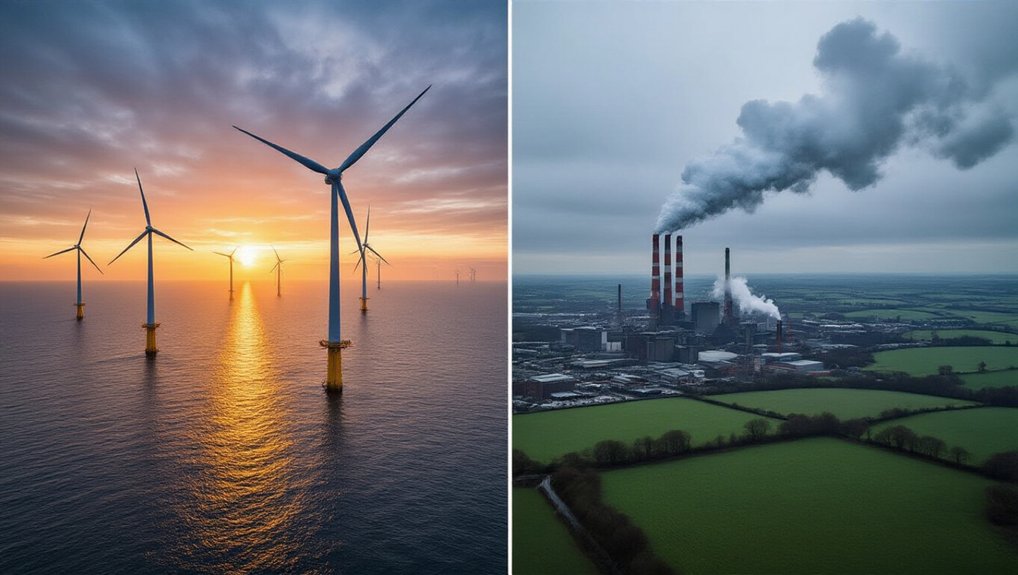The UK’s climate journey is halfway there. Literally. Territorial greenhouse gas emissions have been slashed by 50% compared to 1990 levels, and coal is practically dead in the electricity sector—down 99% since 2008 and headed for extinction next year. Not bad for a country that powered the Industrial Transformation with the stuff.
Recent policy shifts have injected fresh momentum into the nation’s green ambitions. The current Labour government has reformed windfarm planning rules, launched clean power initiatives, and rolled out an Industrial Strategy that’s cutting electricity costs for thousands of businesses. Climate advisers are actually optimistic for once. Imagine that.
Climate advisers with actual optimism? Labour’s green reforms must be doing something right.
Progress looks promising in several areas. Clean power planning is accelerating, electricity decarbonization is well underway, and technologies like heat pumps and electric vehicles are gaining traction. This aligns with global trends where electric vehicles are becoming increasingly mainstream as part of clean energy adoption. More stable policies are finally creating the predictability businesses need. The Climate Change Committee’s first assessment of the new government’s progress was laid before Parliament on June 25, 2025, showing notable improvements. The result? More investment, more innovation, and a fighting chance at hitting those legally binding climate targets.
But here’s where things get dicey. Only 38% of emissions cuts needed by 2030 have credible policies behind them. That’s better than the 25% from two years ago, but still woefully inadequate. The remaining 62%? Hopes, dreams, and vague promises.
Massive gaps remain in road transport, buildings, and industry. Agriculture and shipping are climate policy wastelands. And high electricity prices continue to sabotage electrification efforts across the economy. The energy generation sector has been a bright spot, having achieved an impressive 82% reduction in carbon emissions since 2008. Can’t very well switch to electric when it costs an arm and a leg, can you?
The economic case for net zero remains strong—in theory. But tell that to businesses struggling with transformation costs right now. The 7,000 companies benefiting from cost reduction measures represent just a fraction of the UK economy.
The path forward is clear yet challenging. The UK is headed in the right direction, but this journey needs more than good intentions. It needs relentless momentum and concrete action. Half done isn’t done at all.
References
- https://www.corporateleadersgroup.com/news/clg-uk-rapid-reaction-climate-change-committees-2025-progress-report-emissions-reduction
- https://committees.parliament.uk/committee/664/energy-security-and-net-zero-committee/news/207971/esnz-chair-comments-on-climate-change-committees-latest-assessment-of-government-progress-on-reducing-uk-emissions/
- https://www.ice.org.uk/news-views-insights/inside-infrastructure/takeaways-from-2025-ccc-progress-report
- https://www.carbonbrief.org/?p=58005
- https://energysavingtrust.org.uk/climate-change-committee-report-response/








